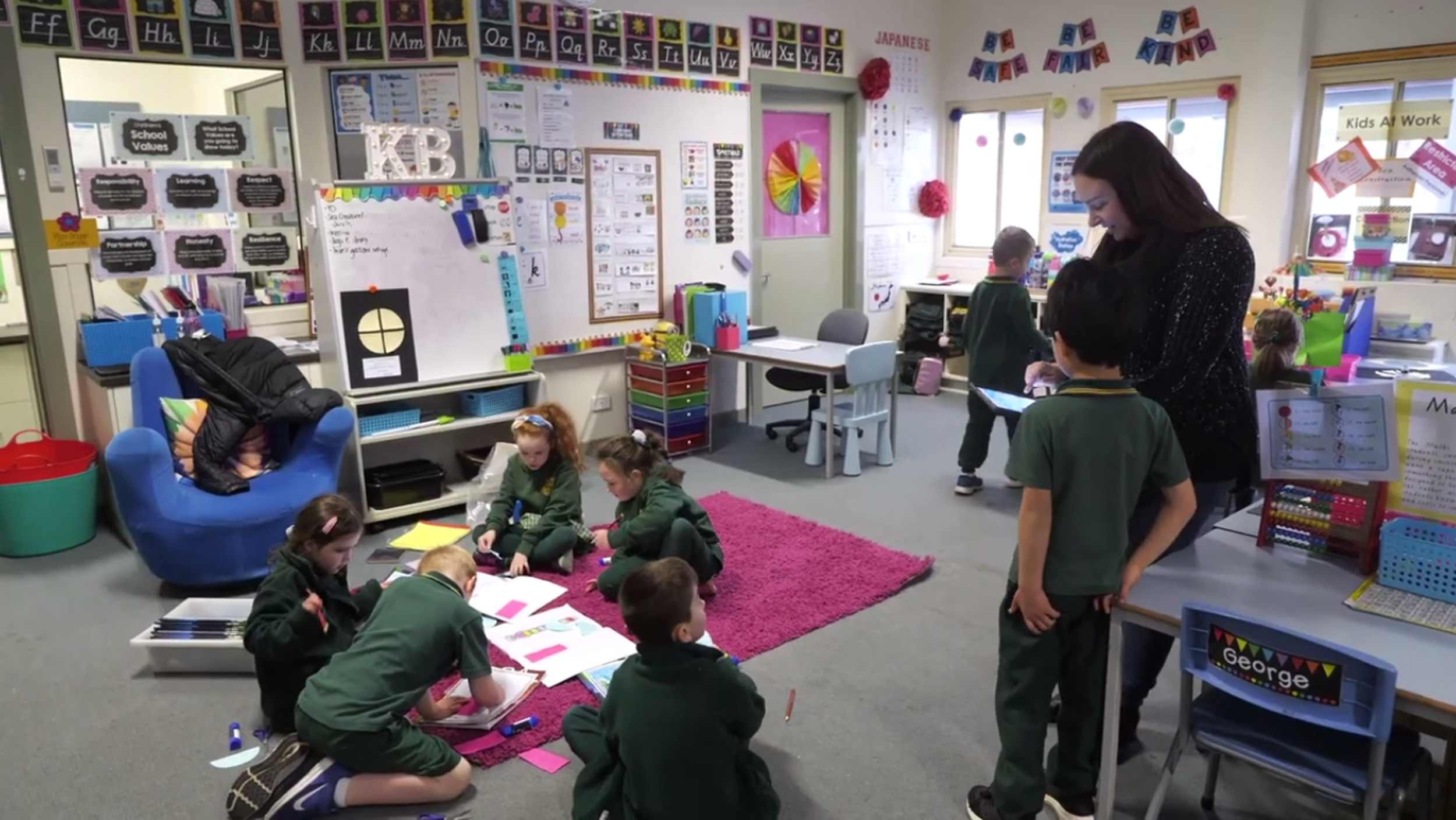Year 1 Yearly Overview
ENGLISH
In Year 1, students are exposed to a variety of fiction and non-fiction texts. During reading sessions, students develop their fluency and expression, decoding strategies, vocabulary and their literal and inferential comprehension. The comprehension strategies which we explicitly teach in Year 1 include predicting, questioning, summarising, visualising, inferring, synthesising, determining importance and making connections.
In Writing, students are taught a variety of text types, including recounts, narratives, information reports, poetry, persuasive and procedural texts. Through explicit instruction and independent writing, students are provided with a vast range of opportunities to develop their skills, including generating ideas, organising and structuring their texts, spelling, sentence structure, grammar and vocabulary use, and editing and revising.
MATHEMATICS
Mathematics is an integral component of teaching and learning in Year 1. Each week, we teach specific concepts which reflect the Victorian Curriculum. These concepts fall under the strands of Number and Algebra, Measurement and Geometry, and Statistics and Probability. Students use concrete materials and engage in hands-on activities in which they are active and involved for deeper understanding and meaningful learning. During Mathematics sessions, students participate in real world and authentic learning tasks.
INVESTIGATIONS
In Year 1, students participate in the Investigations program. Students utilise a variety of Learning Areas including a Sensory Area, Maths Table, Writing Table, Reading Corner, Box Construction, Collage Table, Interest Table and Dramatic Play. Students have the opportunity to work creatively in these spaces developing problem solving, interpersonal and communication skills vital at this age of development. Through the Investigations program, students also develop their critical and creative thinking skills. The Learning Areas provide the backdrop for engaging with the eight Learning Intentions linked to the Victorian Curriculum and the foci of learning in Numeracy, Literacy, Science or Geography, as well as metacognitive and interpersonal skills. These learning intentions help form the focus of each session and students make decisions regarding how they will incorporate these intentions into their investigations.


